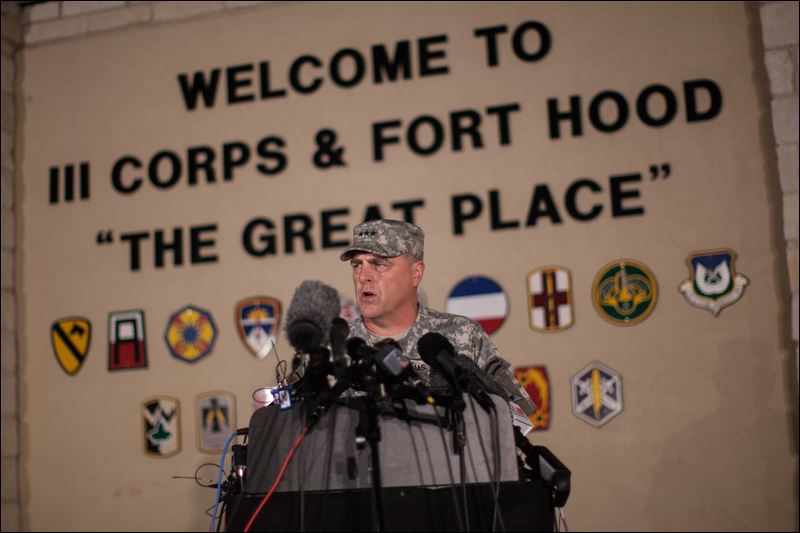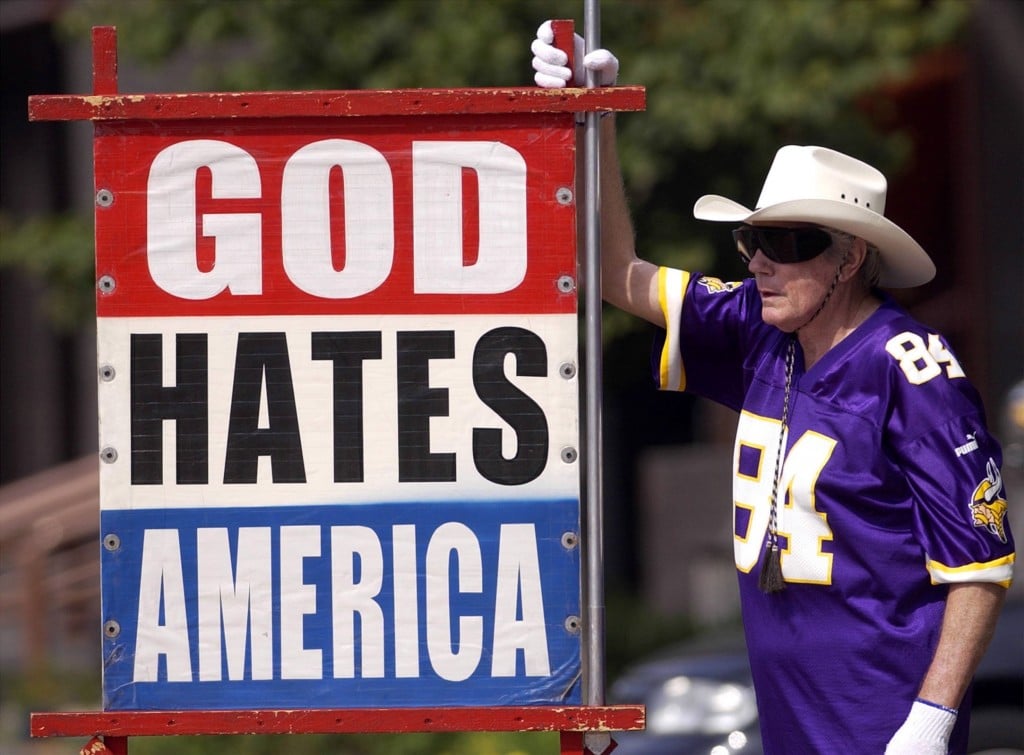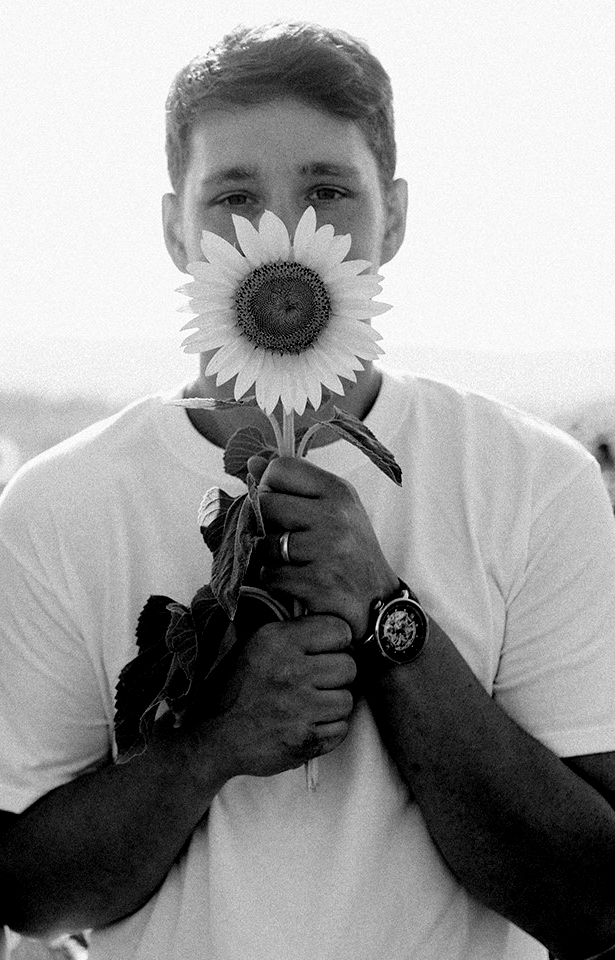“Nobody commits suicide because they want to die –
They just want to stop the pain.”
The tow-headed toddler running down the church aisle tripped and fell over onto his tummy. He paused a moment before getting up, looking around to see if anyone was going to come to his aide, or perhaps he was checking to see if anyone would scold him for behaving so childlike. Although many eyes were on him, no one moved.
“Uh-oh, boo-boo,” he said. Then he stood up and brushed the knees of his jeans and took off running again.
Why couldn’t his aunt have done the same thing? I wondered.
Instead, the 14-year-old lay dead inside the prettiest of lavender-and-chrome caskets at the front of the First Baptist Church that had loved and prayed for her since birth. Since before birth.
She took her own life earlier in the week.
The grandfather who raised her, Charles Dunham, the man of God I wrote about in Where’s Your Jesus Now? — sat in the front row, wrapped in the arms of Sarah Dunham’s older sister, both of them quietly weeping.
I know it isn’t true but there are times when it certainly feels like there’s a curse upon families. As the pastor at First Baptist so soberly noted, Sarah was the third-generation of one family whose funeral he had presided over.
There was Eric Shannon, her biological father.
There was Shirley Dunham, Charles’s wife, who fought so desperately to care for all her grandchildren after her son was killed in a gun battle with police. It was Shirley’s faith that captured me. She was a fierce woman, not easily dissuaded in her devotion to God or her children, or grandchildren.
Shirley had warned the Department of Human Services that there would be hell to pay if they took Eric Shannon’s children from him, and she was right.
There was.
But it seems that the children were the ones left owing the debt, not DHS.
Robin Hocker (Dimick) was pregnant with Sarah the night Eric was killed.
I attended every court proceeding that followed and watched as the orange jumpsuit pulled tighter and tighter against the growing mound of a baby unaware of the chaos that led to Eric’s death and Robin’s conviction.
A year after that night of terror, I went back to Charles and Shirley’s home and pieced together the events that led to the shoot-out that killed the father of seven.
Sarah was a cherub of a toddler. Blonde and chunky in that completely well-cared for way. She would run between the laps of Charles and Shirley, climbing up and down, into the arms of her grandparents, the only father and mother she would ever really know.
And even that too briefly, since Shirley died not long after that, a victim to breast cancer.
The last time I visited the Dunham home in 2008, Sarah drew me a picture, told me she wanted to be a writer one day. She loved to read and was a good student. I’d hoped the book would do well enough to put both Sarah and her sister through college. Writers can be naive that way. Christian bookstores wouldn’t carry the book because of the very topic it addressed — fear. They were afraid their conservative audience would balk at the notion that it’s wrong to live in fear if you are a person of faith. Fear, as it turns out, is a great selling point among evangelicals. That’s how the Left Behind books became international bestsellers. If you want to be a commercial success in the evangelical marketplace, it helps to have a gimmick. Snake oil, it seems, remains a sure thing.
People in the Evangelical community don’t know how to speak about suicide. The word was never used during the entire service.
We speak code. We say things like, “It’s hard.” Or, “We don’t know why God took him/her.” Or, what I consider the most onerous of all remarks, “We know they are in a better place.”
Which always leaves me wondering why we don’t all just up and take our own lives if Heaven is such a terrific alternative.
I have several good friends who have lost a child to suicide. I have walked this journey beside them. I have seen first hand how we Christians tend to tip-toe around the death of someone who takes their own life. We mean well, but, honestly, isn’t it about high time we fessed up to our own failures? Instead of talking about how much better off that person is in heaven, now that they have hung themselves, or pulled the trigger, or swallowed a handful of pills, shouldn’t we be taking a hard look at the ways in which we continually fail these children?
I don’t happen to believe that everyone can do what Sarah’s nephew did — fall down and get back up. Not everyone can pull themselves up by their boot straps. Sometimes they use those boot straps to hang themselves because they feel so completely hopeless.
I stood at the bedside of a best friend hours after she was found unconscious on a beach. The black residue of charcoal streaked her cheeks. Nobody had bothered to wash her face after the medical staff forced her to throw up. Placing my hands on her, I prayed fervently for God to restore her to good health. He answered that prayer.
On Monday, as Sarah contemplated taking her life, my girlfriend and I hiked through a leafy trail and spoke about the darkness that had compelled her suicide attempt. Everything was just so black, she said. Despair grabbed her like a midnight intruder intent on killing.
There is so much we don’t understand about mental health. So much we don’t know about the sort of darkness that leads another to take their own life.
Suicide remains one of the most verboten topics in the church today. We placate our discomfort by telling ourselves that the suicide victim is in a much better place, when what we really need to be asking is how we might have imparted to them a little bit of heaven, some sort of hope, here on earth.
We may never know all the answers to why Sarah took her own life, but we can’t even begin to help other children like her if we don’t at least ponder the question of what more ought we be doing on behalf of those stumbling around in such darkness.











